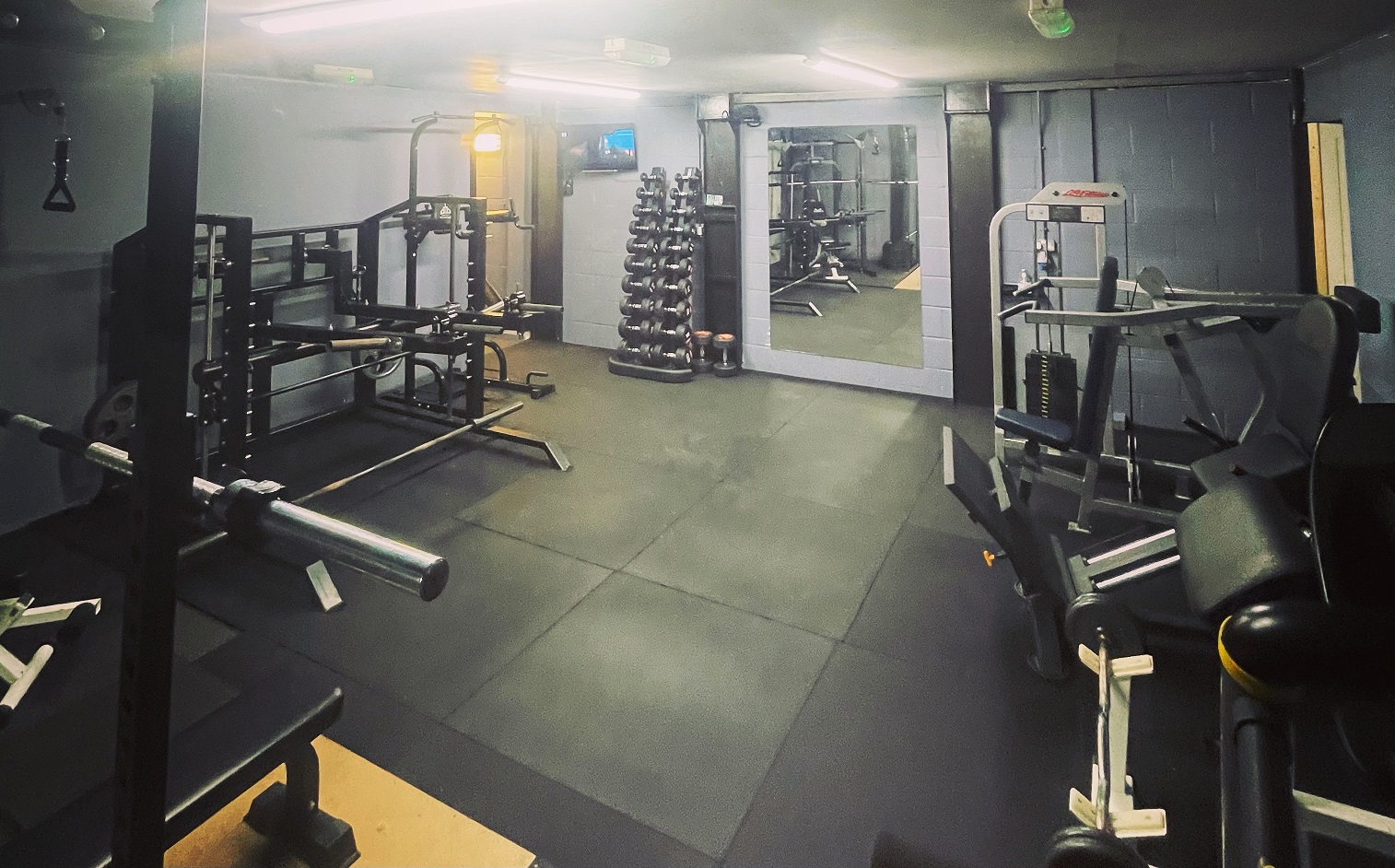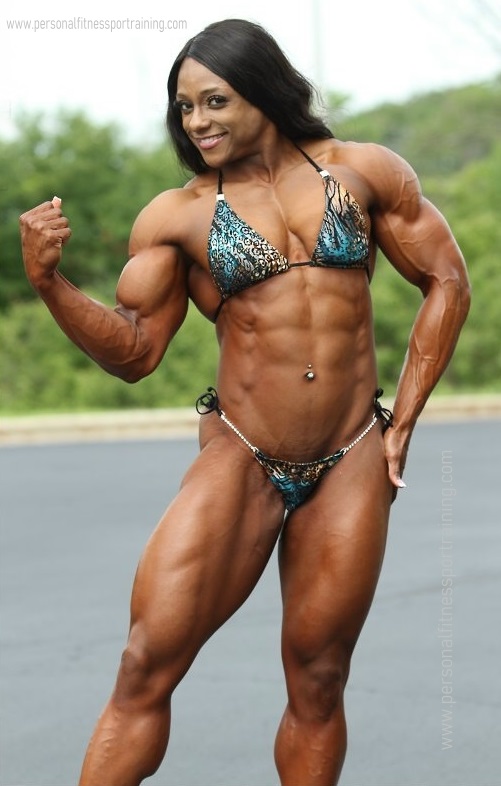1980 – 1989
In 1980, the first Ms. Olympia (initially known as the "Miss" Olympia) was held with Rachel McLish winning and becoming the first Ms. Olympia. Rachel was dethroned by Ritva Elomaa in 1981, but regained the title in 1982. George Snyder lost the rights to the Ms. Olympia in 1982, and after this the contestants were no longer hand-picked, but instead qualified for the Ms. Olympia through placings in lesser contests. As female bodybuilding grew and progressed, the competitors' level of training gradually increased, with most of the competitors in the earliest shows having very little weight training experience, and the sport slowly evolving towards more muscular physiques. This trend started to emerge in 1983, with McLish not competing in the big shows, Carla Dunlap won the 1983 Ms. Olympia. Dunlap possessed a much more muscular physique than previous Ms. Olympia winners McLish or Elomaa.
In 1984, Corinna Everson won the Ms. Olympia title in Montreal Canada, the first competition to be held outside the United States. Everson would go on to win six consecutive Ms. Olympia titles in a row before retiring in 1989 undefeated as a professional, the only woman ever to accomplish this.
1990 – 1999
Normally, competitors must qualify for the Ms. Olympia by achieving certain placings in lesser pro contests. However, the cancellation of the Women's Pro World contest in 1990 left only the Ms. International as a Ms. Olympia qualifier.
Consequently, the IFBB decided to open the 1990 Ms. Olympia to all women with pro cards, and a field of thirty competitors entered. This was also the first Ms. Olympia without the incumbent Ms. Olympia champion defending her title. Lenda Murray earned a decisive victory by winning the first Ms. Olympia competition she attended in 1990 and emerging as the successor to Corinna Everson. The 1991 Ms. Olympia was the first to be televised live. Lenda Murray barely edged out Bev Francis, a former Australian powerlifter, by a single point that year. Lenda Murray faced a serious challenge from Denise Rutkowski in 1993, and some argue that Rutkowski, not Murray, should have won that year. Rutkowski shocked the Ms. Olympia contest entourage and fans by retiring in 1994, just as her career was gaining mainstream popularity and her potential for winning a Ms. Olympia title was high.
In the 1996 Ms. Olympia, six-time consecutive Ms. Olympia champion Lenda Murray was dethroned by Kim Chizevsky-Nicholls (then known as Kim Chizevsky). Chizevsky-Nicholls had previously placed 2nd in the 1995 Ms. Olympia, but her victory came as something of a surprise, since many had regarded Murray as virtually unbeatable. After being defeated by Chizevsky-Nicholls and placing second again in the 1997 Ms. Olympia, Murray retired from bodybuilding. Chizevsky-Nicholls went on to win the 1998 Ms. Olympia, held in Prague, Czech Republic, the second and most recent time the competition had been held outside the United States. 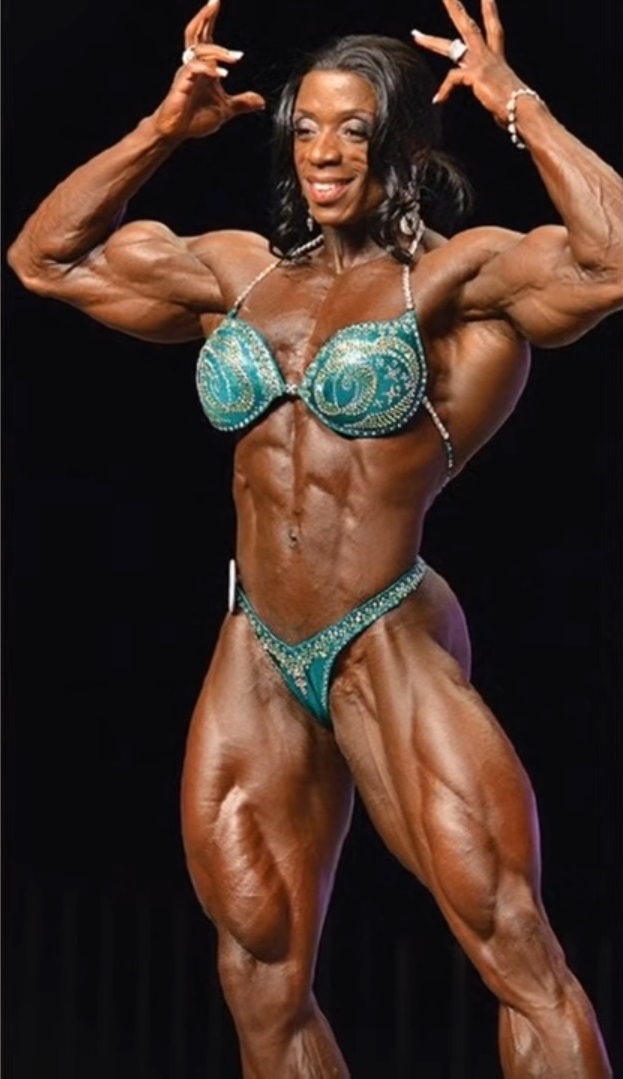
1992 Ms. Olympia changes
In response to the increased size displayed by Murray and Francis at the previous Ms. Olympia, the IFBB made an attempt to "feminize" the sport. The IFBB, led by Ben Weider, had created a series of "femininity"
rules - one line in the judging rules said that competitors should not be "too big". The judges’ guide to the competitors stated that they were looking for a feminine, but not emaciated, physique. Advertising in Muscle & Fitness for the 1992 Ms. Olympia featured Anja Schreiner of Germany prominently, relegating two-time defending champion Murray to a small "also competing" notice. Nevertheless, Murray apparently met the "femininity" requirements, and managed to retain her title; Schreiner finished 6th, and promptly retired from competition. After 1992, the judging rules were rewritten, with the new rules retaining provisions for aesthetics but allowing the contests to be judged as physique contests. Murray went on to win six consecutive Ms. Olympia titles from 1990 to 1995, matching Corinna Everson's record. Produced by: American Sports Network and Nationally Televised on ESPN. Directed by: Keith Hobelman
1999 Ms. Olympia controversy and retirement
In 1999, Ms. Olympia was originally scheduled to be held on October 9 in Santa Monica, California. However, one month before the scheduled date, the IFBB announced that the contest had been canceled. The main cause was the withdrawal of promoter Jarka Kastnerova (who promoted the 1998 contest in Prague) for financial reasons, including a low number of advance ticket sales for the 1999 event. The backlash following the announcement led to a flurry of activity, with the contest being rescheduled as part of the Women's Extravaganza (promoted by Kenny Kassel and Bob Bonham) in Secaucus, New Jersey on 2 October. Last minute sponsorship came from several sources, most significantly in the form of $50,000 from Flex magazine. Amid all the turmoil, Kim Chizevsky-Nicholls won her fourth consecutive Ms. Olympia title. Also notable about the 1999 Ms. Olympia was that this was the first Ms. Olympia Iris Kyle competed in. However, after the 1999 Ms. Olympia, Kim Chizevsky-Nicholls retired from bodybuilding and began competing in fitness and figure competitions in 2001. 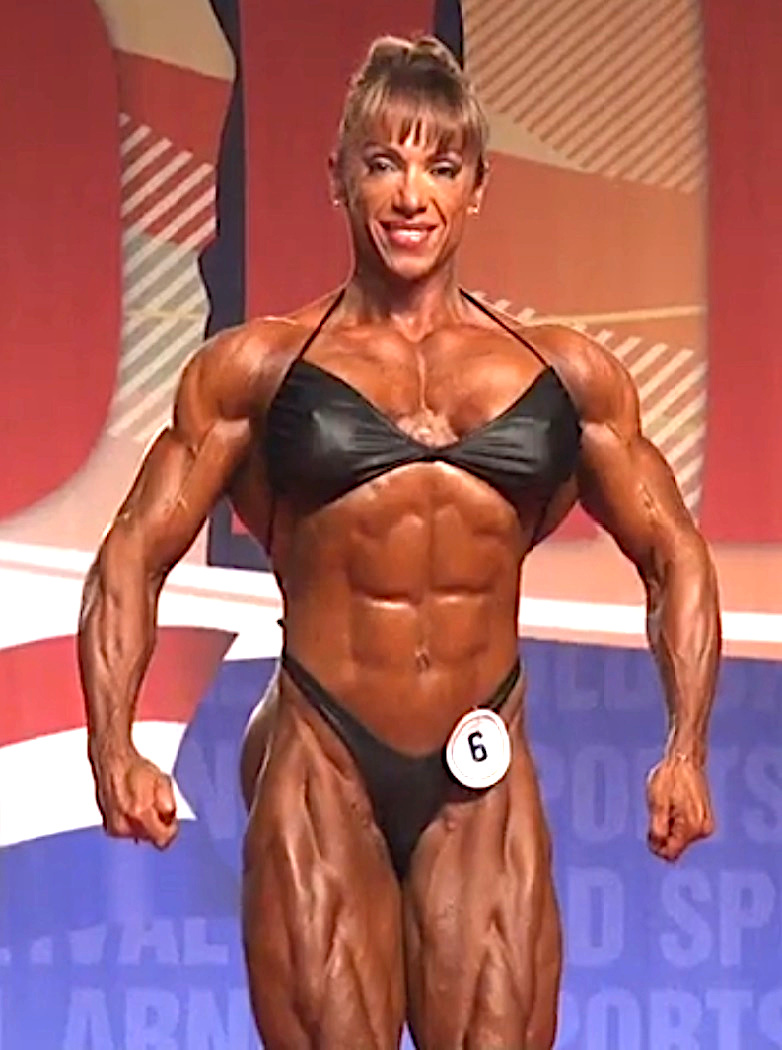
2000
– 2005
The 2001 Ms. Olympia featured a "surprise" win from Juliette Bergmann who returned to competition after not competing since 1989. Entering the Olympia as a lightweight, she defeated heavyweight winner Iris Kyle for the overall title. In the five years that the Ms. Olympia was contested in multiple weight classes, this was the only time that the lightweight winner took the overall title.
After five-year absence, six-time Olympia winner Lenda Murray returned to the 2002 Ms. Olympia, with Bergmann won lightweight and Murray winning heavyweight and overall. Murray went on to win both the heavyweight and overall in the 2002 and 2003 Ms. Olympia. Murray was for the second time in her career was dethroned of her Ms. Olympia title by Iris Kyle in 2004, who won the heavyweight and overall. After her 2004 Ms. Olympia defeat, Murray, retired from bodybuilding.
2000 Ms. Olympia changes
The IFBB introduced several changes to Ms. Olympia in 2000. The first change was that Ms. Olympia contest would no longer be held as a separate contest, instead became part of the "Olympia Weekend" in Las Vegas and held the day before the men’s show. The second change was when heavyweight and lightweight classes were added. The third change was the new judging guidelines for presentations were introduced. A letter to the competitors from Jim Manion (chairman of the Professional Judges Committee) stated that women would be judged on healthy appearance, face, makeup, and skin tone. The criteria given in Manion's letter included the statement "symmetry, presentation, separations, and muscularity BUT NOT TO THE EXTREME!" The 2000 Ms. Olympia is the only Ms. Olympia with no overall winner, with Andrulla Blanchette winning lightweight class and Valentina Chepiga winning heavyweight class. 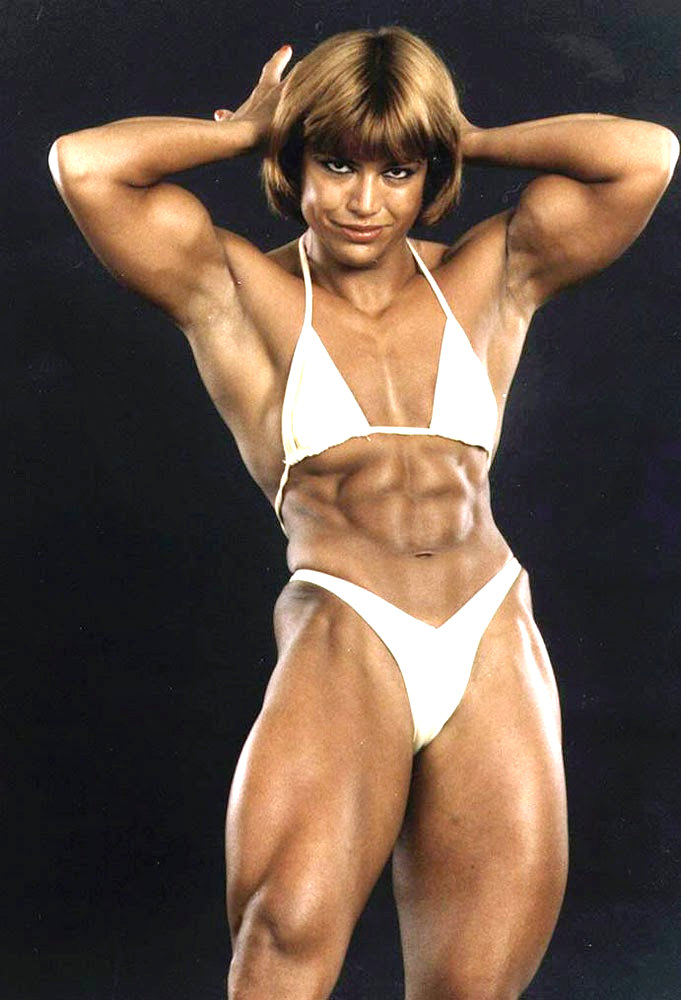
2005 Ms. Olympia changes
The IFBB introduced the so-called '20 percent rule', requesting "that female athletes in Bodybuilding, Fitness and Figure decrease the amount of muscularity by a factor of 20%". The memo stated that the request "applies to those female athletes whose physiques require the decrease". Another change added to the 2005 Ms. Olympia, was the abandonment of the weight class system adopted in 2000. In 2005 Ms. Olympia, Iris Kyle was dethroned by Yaxeni Oriquen-Garcia.
2006 – 2014
Iris Kyle reclaimed her Ms. Olympia title in 2006, and went on to win the next eight titles, until 2014. With ten overall wins, Kyle has won more Olympia titles than any other bodybuilder, female or male, and announced her retirement right after winning the title in 2014, which was when the final Ms. Olympia competition was held.
2019 – present
After five years of being discontinued, on September 14, 2019, emcee Bob Chicherillo announced at the Joe Weider's Olympia Fitness & Performance Weekend 2019 that the Ms. Olympia would return to the Joe Weider's Olympia Fitness & Performance Weekend 2020. 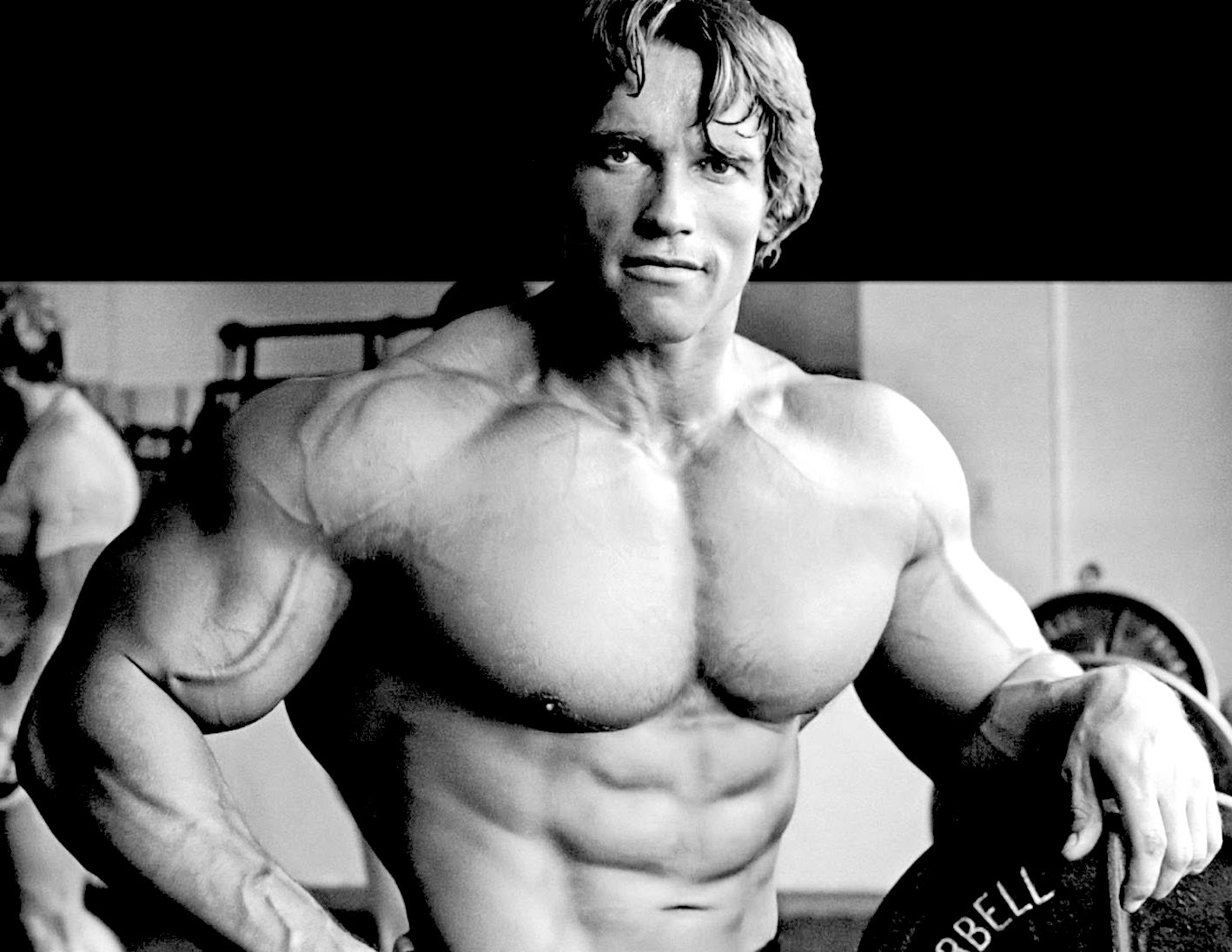
Probably
the most famous Mr Olympia; The
Terminator. If
you spend enough time working on your body, eat the right foods and train
sensibly, you could look like Arnold
Schwarzenegger, be a Hollywood film star, and if you are into politics,
the Governor of California.
|

